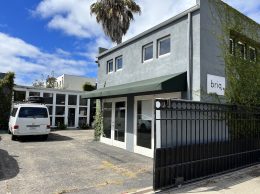$135M could have Sonos singing different tune
IN THIS ARTICLE
- Banking & Finance Topic
- Stephen Nellis Author
By Stephen Nellis Friday, June 29th, 2012
Santa Barbara-based wireless music gear maker Sonos has raised $135 million in new capital, the largest funding deal in the Tri-Counties so far this year and possibly a substitute for an initial public offering.
Kohlberg Kravis Roberts, a private equity firm, led the funding round and was joined by Redpoint Ventures and investors associated with Elevation Partners.
Sources confirmed to the Business Times that $45 million of the new round is primary capital that will be used to grow the company and that the remaining $90 million will be used to buy stock from founders and earlier investors — a mix of uses that’s eerily similar to the traditional function of an IPO.
Jo Anne Miller, a partner in Milk Street Ventures who has worked on late-stage venture capital deals, said that it’s common for later investors to quietly buy out earlier ones somewhere before an initial public offering. But she said the Sonos deal raises eyebrows because investors are leaving only two years after leading a funding round.
The deal is also a significant capital infusion, in addition to a buyout, signaling that Sonos wanted funds. It also marked the entry of a private equity firm. Private equity firms often pass on pre-IPO tech deals because they rarely offer the opportunity for full control of the company.
“It’s not a super unusual deal, but it’s not a usual deal,” Miller said.
The previous Sonos investors include Index Ventures, which led a $25 million round in 2010, and BV Capital. As part of the deal, BV Capital partner Andreas von Blottnitz will leave the board. Von Blottnitz was CEO of Santa Barbara-based ExpertCity when it sold to Citrix Online and has remained an active investor in the Tri-Counties, where he has funded firms such as AppFolio, whose board he sits on.
David Kerko of KKR will take a seat on the Sonos board as will Fred Anderson, one of Elevation’s partners who was formerly the chief financial officer for Apple.
Sources confirmed that South Coast entrepreneur John MacFarlane, the CEO of Sonos and former mastermind of Software.com, will remain at the helm.
Sonos makes a wireless digital music player that can beam 32 different streams of music to rooms in a home or business. Though the firm keeps a quiet presence on the South Coast, the high-end gear has become increasingly popular with the rise of streaming music services and is reportedly gaining traction in Asia and other markets.
Sonos declined to comment for this story, and it’s impossible to tell with certainty what the deal means for the company or McFarlane, its intensely private founder. It can only be inferred that the previous investors were satisfied with the return on their money that the KKR offer represented.
“You don’t usually see one of these deals unless something has changed — timing or direction or that inside one of the existing funds someone was looking for an exit,” Miller said. “Generally this would be something they would do because it would be longer to the IPO than the other investors wanted.”
But there’s also there’s also the distinct possibility that the KKR deal is being substituted for an IPO. The deal is about the size of a small IPO. It serves many of the same functions — liquidity for founders and early investors, growth capital — and has none of the regulatory costs and baggage of an IPO and being a public company. And Sonos management could have made the bet that private equity investors with a predictable risk-return model will be more reasonable owners than a potentially rancorous public shareholder base.
Miller said the massively fumbled Facebook public offering earlier this year cast a pall over tech deals on the public markets for institutional investors, shareholders and management alike.
“I think it’s gotten people scared,” Miller said. “I think the potential for more delayed IPOs is really quite strong.”












